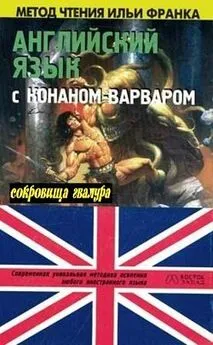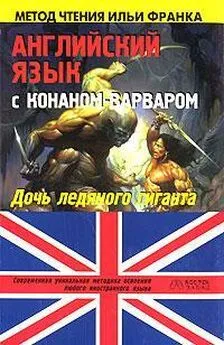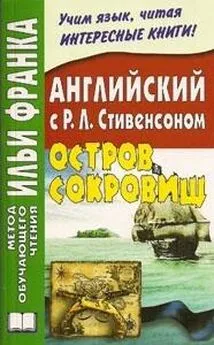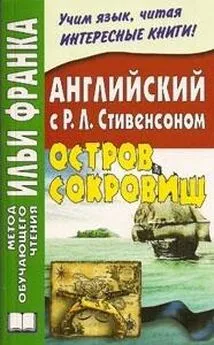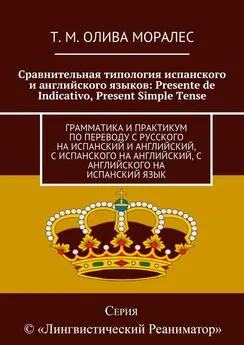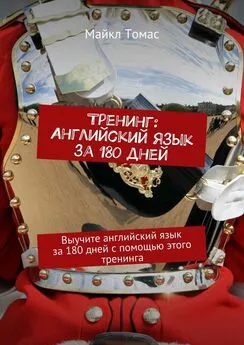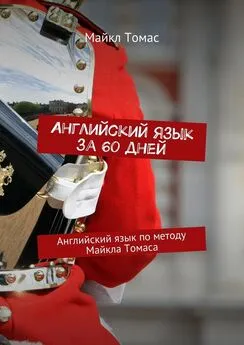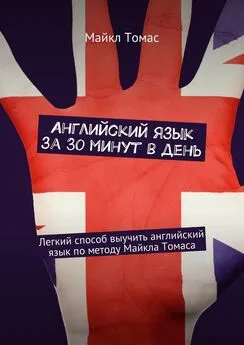Роберт Говард - Английский язык с Р. Э. Говардом
- Название:Английский язык с Р. Э. Говардом
- Автор:
- Жанр:
- Издательство:неизвестно
- Год:неизвестен
- ISBN:нет данных
- Рейтинг:
- Избранное:Добавить в избранное
-
Отзывы:
-
Ваша оценка:
Роберт Говард - Английский язык с Р. Э. Говардом краткое содержание
В книге предлагается произведения Роберта Е. Говарда, адаптированные (без упрощения текста оригинала) по методу Ильи Франка. Уникальность метода заключается в том, что запоминание слов и выражений происходит за счет их повторяемости, без заучивания и необходимости использовать словарь. Пособие способствует эффективному освоению языка, может служить дополнением к учебной программе. Предназначено для студентов, для изучающих английский язык самостоятельно, а также для всех интересующихся английской культурой.
"Метод чтения Ильи Франка
"Повести:
Jewels of Gwahlur (Сокровища Гвалура)
The Devil In Iron (Железный демон)
Rogues In The House (Негодяи в доме)
The Tower Of The Elephant (Башня Слона)
Английский язык с Р. Э. Говардом - читать онлайн бесплатно полную версию (весь текст целиком)
Интервал:
Закладка:
rhythmical [ˈrɪðmɪkəl], aware [əˈwɛə], knew [nju:]
Somewhere ahead there began the rhythmical booming of a drum. It was not such a sound as she would have expected to hear in that time and place. Then she forgot it as she was aware of a presence near her. She could not see, but she knew that something was standing beside her in the darkness.
With a stifled cry she shrank back (со сдавленным криком она отпрянула назад; to stifle — душить; подавлять;to shrink — уменьшать; отпрянуть, отшатнуться ), and as she did so (и когда она делала так = это ), something that even in her panic she recognized as a human arm curved about her waist (нечто, что даже в панике она распознала как человеческую руку, согнулось вокруг = охватило ее талию; to curve — гнуть; изгибаться ). She screamed and threw all her supple young strength into a wild lunge for freedom (она завизжала и вложила всю свою гибкую молодую силу в дикий рывок к свободе; to throw — бросать; мобилизовать, устремить, «бросить» /о внутреннем потенциале, силах, возможностях и т. д./ ), but her captor caught her up like a child (но ее пленитель подхватил ее, как ребенка; to catch up — подхватить ), crushing her frantic resistance with ease (легко подавив ее яростное сопротивление; to crush — давить; подавить; ease — облегчение; легкость ). The silence with which her frenzied pleas and protests were received (молчание, которым были встречены ее бешеные призывы и протесты; to receive — получать; принимать, встречать; воспринимать ) added to her terror as she felt herself being carried through the darkness toward the distant drum (усилило ее ужас, когда она ощутила себя несомой = как ее несут сквозь тьму к далекому барабану; to add to — усиливать ), which still pulsed and muttered (который все еще пульсировал и глухо грохотал; to mutter — бормотать; глухо грохотать ).
recognize [ˈrekəɡnaɪz], ease [i:z], receive [rɪˈsi:v]
With a stifled cry she shrank back, and as she did so, something that even in her panic she recognized as a human arm curved about her waist. She screamed and threw all her supple young strength into a wild lunge for freedom, but her captor caught her up like a child, crushing her frantic resistance with ease. The silence with which her frenzied pleas and protests were received added to her terror as she felt herself being carried through the darkness toward the distant drum, which still pulsed and muttered.
4
As the first tinge of dawn reddened the sea (когда первый оттенок зари окрасил красным цветом море = когда море зарделось от первых рассветных тонов; to redden — окрашивать в красный цвет; зардеться ), a small boat with a solitary occupant approached the cliffs (маленькая лодочка с единственным обитателем = человеком в ней приближалась к утесам; occupant — житель; человек, занимающий место в транспорте ). The man in the boat was a picturesque figure (человек в лодке был колоритной фигурой). A crimson scarf was knotted about his head (малиновый шарф был стянут узлом вокруг его головы; knotted — завязанный, стянутый узлом; knot — узел ); his wide silk breeches, of flaming hue, were upheld by a broad sash (его широкие шелковые штаны яркого цвета были подхвачены широким кушаком; breeches — бриджи; штаны; to uphold — поддерживать ), which likewise supported a scimitar in a shagreen scabbard (который также поддерживал кривую саблю в шагреневых ножнах). His gilt-worked leather boots suggested the horseman rather than the seaman (его отделанные позолотой кожаные сапоги наводили на мысль скорее о всаднике, нежели о мореходе; gilt — позолота; worked — отделанный, обработанный;to suggest — предлагать; наводить на мысль ), but he handled his boat with skill (но он мастерски управлялся с лодкой). Through his widely open white silk shirt showed his broad, muscular breast, burned brown by the sun (сквозь его широко открытую белую шелковую рубаху виднелась его широкая, мускулистая грудь, коричневая от солнечного загара; to show — показывать; виднеться; to burn — гореть; сжигать; sunburn — загар; brown — коричневый; смуглый, загорелый ).
approach [əˈprəuʧ], broad [brɔ:d], breast [brest]
As the first tinge of dawn reddened the sea, a small boat with a solitary occupant approached the cliffs. The man in the boat was a picturesque figure. A crimson scarf was knotted about his head; his wide silk breeches, of flaming hue, were upheld by a broad sash, which likewise supported a scimitar in a shagreen scabbard. His gilt-worked leather boots suggested the horseman rather than the seaman, but he handled his boat with skill. Through his widely open white silk shirt showed his broad, muscular breast, burned brown by the sun.
The muscles of his heavy, bronzed arms rippled (мускулы его сильных, загорелых рук перекатывались; bronzed — покрытый бронзой; загорелый; to ripple — покрываться рябью; волноваться ) as he pulled the oars with an almost feline ease of motion (когда он греб веслами почти с кошачьей легкостью движения; to pull — тянуть; грести, идти на веслах ). A fierce vitality that was evident in each feature and motion set him apart from the common men (пылкая энергичность, которая была видна в каждой черте и каждом движении, отличала его от обычных людей; fierce — жестокий; пылкий; vitality — жизнеспособность; энергичность; evident — явный; наглядный;to set apart — помещать отдельно; отдалять ); yet his expression was neither savage nor somber (но выражение /его лица/ не было ни свирепым, ни угрюмым; savage — дикий; свирепый; somber — мрачный; угрюмый ), though the smoldering blue eyes hinted at ferocity easily wakened (хотя тлеющие /огнем/ голубые глаза намекали на легко вызываемую свирепость; to waken — пробуждать/ся/; вызывать ). This was Conan (это был Конан), who had wandered into the armed camps of the kozaks with no other possession than his wits and his sword (который забрел в укрепленные лагеря козаков без какого-либо имущества, кроме своего ума и меча; armed camp — укрепленный лагерь; possession — владение; имущество ), and who had carved his way to leadership among them (и который пробил себе дорогу к предводительству среди них; to carve one's way — пробивать себе дорогу ).
feature [ˈfi:ʧə], wander [ˈwɔndə], possession [pəˈzeʃn]
The muscles of his heavy, bronzed arms rippled as he pulled the oars with an almost feline ease of motion. A fierce vitality that was evident in each feature and motion set him apart from the common men; yet his expression was neither savage nor somber, though the smoldering blue eyes hinted at ferocity easily wakened. This was Conan, who had wandered into the armed camps of the kozaks with no other possession than his wits and his sword, and who had carved his way to leadership among them.
He paddled to the carven stair as one familiar with his environs and moored the boat to a projection of the rock (он греб к высеченной лестнице, как человек, знакомый с окрестностями, и причалил лодку к выступу скалы; one — один; человек ). Then he went up the worn steps without hesitation (затем он, не колеблясь, поднялся = стал подниматься по истертым ступеням; to wear — носить /одежду/; изнашивать; стирать /напр., обувь/ ). He was keenly alert (он был крайне осторожен; keenly — сильно; keen — острый ), not because he consciously suspected hidden danger (не потому что он осознанно подозревал скрытую опасность), but because alertness was a part of him (а потому что осторожность была частью его), whetted by the wild existence he followed (отточенная дикой жизнью, которую он вел; to follow — следовать; придерживаться ).
What Ghaznavi had considered animal intuition or some sixth sense was merely the razor-edged faculties and savage wit of the barbarian (то, что Газнави считал звериной интуицией или неким шестым чувством, было лишь обостренными способностями и дикарской сообразительностью варвара; razor edge — острый край, острие бритвы ). Conan had no instinct to tell him (у Конана не было инстинкта, который бы сообщил ему) that men were watching him from a covert among the reeds of the mainland (что из убежища среди камышей материка за ним наблюдают люди).
consciously [ˈkɔnʃəslɪ], faculty [ˈfækəltɪ], covert [ˈkʌvə]
He paddled to the carven stair as one familiar with his environs and moored the boat to a projection of the rock. Then he went up the worn steps without hesitation. He was keenly alert, not because he consciously suspected hidden danger, but because alertness was a part of him, whetted by the wild existence he followed.
What Ghaznavi had considered animal intuition or some sixth sense was merely the razor-edged faculties and savage wit of the barbarian. Conan had no instinct to tell him that men were watching him from a covert among the reeds of the mainland.
Читать дальшеИнтервал:
Закладка:
